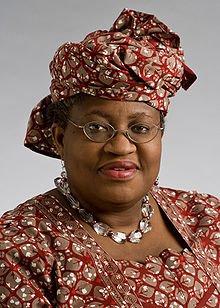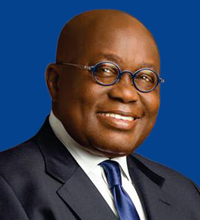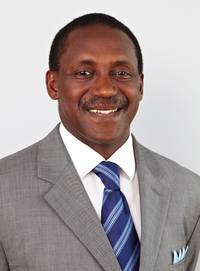- Details
- Category: Latest
- Hits: 7207
By Abdul Ghelleh
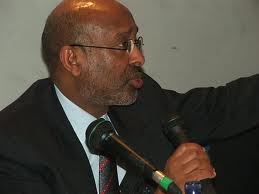 With Meles Zenawi of Ethiopia dead and Matt Bryden down and out, we must finally put 21 years of madness behind us, and fast. And don’t forget; we have a lot of catching up to do as we can’t afford to make the same stupid mistakes over and over again. It’s high time to keep the momentum going, and no doubt things are improving in our country. Let’s rebuild our country and speed up the social and political development programmes for our people. Somalia has never had it so good.
With Meles Zenawi of Ethiopia dead and Matt Bryden down and out, we must finally put 21 years of madness behind us, and fast. And don’t forget; we have a lot of catching up to do as we can’t afford to make the same stupid mistakes over and over again. It’s high time to keep the momentum going, and no doubt things are improving in our country. Let’s rebuild our country and speed up the social and political development programmes for our people. Somalia has never had it so good.
If we are capable of destroying our country and fuelling our own civil war from inside and outside of the country for more than two decades, surely we are more than capable of designing and restructuring a new Somalia in under half a decade. Of course, we can go from strength to strength.
And let’s capture the scene; the fresh breeze is blowing in our direction. On August 7, the UN Security Council had a short discussion on the Somalia-Eritrea Monitoring Group’s latest report. A senior SC source quoted by Inner City Press: ‘there are negative reviews of Bryden's performance, he is leaving’. We now know that he has been fired and that he is no longer able to meddle in our national sovereignty. And a day after the new Somali Parliament was inaugurated, the news came through that Meles Zenawi, the charismatic Ethiopian leader who most of us blame for the disorder in our country, has died.
And to boost the new optimism which prevails over our brighter future destiny, the resolve of the International Community to support Somalia until she stands on her feet is firmly in place. What else would you wish for your country at this critical stage? We must not miss the unique opportunity presented to us and we must unite behind the efforts to cool the atmosphere in order to move forward and catch up with our neighbours. ‘Hassan or Farah flew to Nairobi or Addis Ababa’ has become the accepted social routine for people visiting relatives back home for more than 20 years. This coming winter, I want to visit Mogadishu or Hargeisa, and possibly fly direct from Istanbul or London Heathrow.
If we really want to break from the past and clear the path for our people’s progress toward rebuilding our lives, we must elect a new president who does not believe in our web of complex clan systems. We all know that the clan politics is what destroyed our nation to beyond recognition; the clan politics is what gave birth to Al Shabaab lunatics; the clan politics restrict the individual’s abilities to discharge his or her duties and responsibilities, making previously good and active character totally immoral and idle. In fact the clan system erodes the community cohesion and brings a good social and governance programme into disrepute. Aren’t we, Somalis, the experts in this?
I have never backed anyone to lead our country before. I must admit, however, that in these past few days, I am sometimes spoiled for choice as there are few people contesting in the elections with untainted integrity and of good character. And for the first time since 1991, I identified the right man who is able and suitably qualified to help stabilise our broken society. I made my mind up.
Professor Ahmed Ismail Samatar must be elected the new President of Somalia. I don’t know him personally and I am not from the same region as him. But Professor Samatar’s speeches and written materials have convinced me that he is the best person to be the next Somali President. A couple of credible colleagues of mine also expressed favourable opinions of Professor Samatar. And after I looked everywhere and spoke to a number of people who know him personally - Somali and non-Somali - I have not heard or discovered single negative views of him. Professor Samatar is anti-clan favouritism and well known anti-corruption campaigner. He is focused with clear agenda to reverse our past misfortunes. Professor Samatar can help brighten our bleak future.
Professor Samatar did not write or compose these lines: ‘Diidnaye ogow dalkayaga ninkii doonaayayoow, inuu duudsiyo raboow, annagu diidnaye ogoow’. But after he fired away the song during a recent speech to a global audience, most of us associated these Somaliness, powerful and nationalistic words with the professor.
I now call upon all non-clan believing Somalis everywhere to join me in asking our selected constituent Members of Parliament to vote for professor Ahmed Ismail Samatar on Sunday August 26.
A beautiful and colourful dawn is in the horizon; please do not allow anyone to obscure it from us. After more than couple of decades of brutal civil war and social anarchy, I need a fresh start. How about you? Together we can fix our country for the better and for good.
- Details
- Written by APF
- Category: Latest
- Hits: 5914
By PAUL WAFULA Published by Africa Review Tuesday, August 7 2012 at 13:54
 An international conference on leadership and wealth creation is underway in the Kenyan coastal city of Nairobi.
An international conference on leadership and wealth creation is underway in the Kenyan coastal city of Nairobi.
The 3rd Africa Governance, Leadership and Management Convention started Monday and is being attended by delegates from more than six countries including various business leaders.
Speakers include former Nigerian President Olusegun Obasanjo, UNDP Africa Bureau head Tegegnework Gettu and Dr Donald Kaberuka, the president of the African Development Bank.
Other speakers include renowned Kenyan industrialist Dr Manu Chandaria, United Bank of Africa Kenya boss Tunji Adeniyi and the chief executive of the Nation Media Group, Mr Linus Gitahi.
It will discuss wealth and job creation on the continent as population growth continues to outpace economic expansion and hundreds of thousands of graduates go jobless.
"We cannot expect that someone else will come and create jobs for Africa unless we do it ourselves. Everyone is tired of the same song about poverty in Africa and we should now change the drum beat,” Mr Obasanjo, who is also the patron of the conference, said Sunday ahead of the official opening of the four-day meeting.
Host Kenya created about 500,000 jobs last year, most of which were in the informal sector, and participants will also discuss the role of African institutions in wealth creation.
The meeting is organised by among others the Africa Leadership Forum and the United Nations Development Program.
- Details
- Written by APF
- Category: Latest
- Hits: 6233
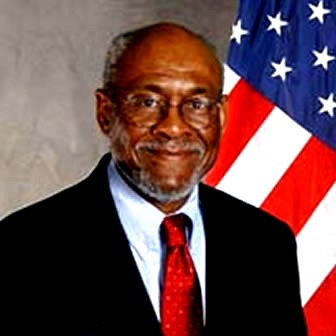 By Eric Acha
By Eric Acha
The tides could be turning on the Cameroon leadership following a senate hearing that took place on April 18 2012 at the US Senate/Subcommittee on Africa that was dominated with discussions on the Biya one-man-leadership that has been in power for over three decades. The Tsunami on Biya and Cameroon was unleashed in opening remarks by the US Assistant Secretary of State for African Affairs at the US State Department; Johnie Carson’s in which he revealed that following the conclusions of the 2011 presidential elections in Cameroon, he wrote to president Biya, urging the reestablishment, as soon as possible the term limit and the implementation of constitutional reforms and a more transparent and an independent electoral commission.
In his remarks to the committee that narrowed and focused on Cameroon, Hon Johnie Carson accused the Cameroon political leaders of the ruling party to have taken advantage of the country’s relative stability, prosperity and system of patronage to entrench their leadership. He added that the little oil that Cameroon has got has helped to provide a cushion to Paul Biya and encourage a patronage system as well as fuelled corruption in the country. In his words:
“Oil has been behind some of the corruption and patronage that has helped to keep Paul Biya in power”
In what seem to be the first and most damning declaration from a senior US official regarding the 2011 presidential elections in Cameroon, Hon. Carson unflinchingly declared before the committee that the 2011 presidential elections in Cameroon were seriously flawed; polling stations opened late, citizens were allowed to vote multiple times in some cases, ballot box stuffing and voters intimidations were observed in various parts of the country.
He lamented the fact that the Supreme Court received credible complaints of fraud from opposition parties, but unfortunately the court unjustly dismissed all the cases. This testimony and open declaration by Hon Johny Carson of the US State department goes far to explain why the US has until this day, not sent any form of congratulatory message to president Biya following the October 2011 presidential elections.
On comparing the US policy response between Cameroon and Senegal where both Wade and Biya had “tinkered” their constitutions by removing term limits, Carson explained that the US acted differently in Cameroon because the threat of violence and wide spread instability was not as great or as serious as it appeared to be in Senegal on the eve of the presidential elections. This is clear confirmation of the role the people’s power played in stopping Wade from another term in office. In contrast to the passive civil society in Cameroon, the Senegalese active civil society played a key role in organizing the grassroots support that quickly turned into an anti Wade movement.
In his closing remarks, Hon Johnie Carson remained optimistic about the future of Cameroon. He reiterated the popular believe that a democratic change is invertible in Cameroon, especially with President Biya getting close to 80 years old, implying that if the change doesn’t come from Cameroonians themselves, time will catch up with him eventually.
He called upon and persuaded the Senate/subcommittee on Africa to write to President Paul Biya in the same way the senates wrote to President Wade of Senegal, calling on him to respect the democratic norms so as to enable a smooth and peaceful transition of power in Cameroon. He also called on the Senate to remind Biya that the international community is focused on what is happening in Cameroon and the need to put stronger institutions which will ensure a stable transition when it comes.
On the second panel of the hearing, Dr. Christopher Fomunyoh, Senior Director for Africa at the national Democratic Institute (NDI) reminded and brought to the attention of the committee that for the past 50 years, Cameroon has failed to conduct national elections that were not overshadowed by controversy. Fomunyoh stressed that in Cameroon, the opaque handling of electoral processes and government-imposed hurdles impede the ability of civil society and independent media to monitor and report on elections.
He decried the fact that, the Cameroonian youth, prompted by restrictive laws and a lack of confidence in the country’s political system and institutions, are becoming apathetic and apprehensive of their future
Dr Fomunyoh who is widely expected to play a key role in the transition process in Cameroon raised legitimate concerns to the committee on the fact that, the lack of political will to create the appropriate framework for credible democratic elections in Cameroon, while preserving an entrenched regime in power, may push the country to the brink of violence and instability.
He equally called on the need to strengthen and embolden the Cameroonian civil society, giving their importance to the democratization process in Cameroon
Other panelists to the hearing included Dr. Mo Ibrahim of the Mo Ibrahim Foundation and Hon Earl Gast Assistant Administrator for Africa, U.S. Agency for International Development. Amongst the senior senators and committee members present for the hearing were Dem. Senator John Kerry and Senator Isakson.
For the complete testimoy from all 4 speakers, visit the APF repository on this link:
http://www.africanpolicyforum.org/index.php?option=com_jdownloads&Itemid=41&view=viewcategory&catid=11
- Details
- Written by APF
- Category: Latest
- Hits: 3926

In what many consider "a new blue print" the Obama's White House has announced a new US strategy for sub-Saharan Africa, which focuses on the continent's economic potential.
In what sounds like a strategy of hope and optimism stated that, Africa, a continent torn by poverty, corruption and discord could be the world’s next big economic success story.
The strategy also explores issues related to democracy, security and development on the continent. Tapped from diverse sources involving a rigorous process that drew on the expertise of leaders from both inside and outside of government including African voices, the US government believes that the new strategy will place the US in a stronger position to help its African partners seize the opportunities and meet the challenges facing the continent.
President Barack Obama said African democracy had improved but corruption was endemic in many countries and state institutions were weak.
One key area of interest in the strategy is the US planned response to China's increasing influence on the continent through investment and trade.
The president stated that he would work with Congress to develop preferential trade agreements with African countries, while fighting al-Qaeda and its affiliates on the continent.
"As we look toward the future, it is clear that Africa is more important than ever to the security and prosperity of the international community, and to the United States in particular," said Mr Obama, the US-born son of a Kenyan man.
The White House said its new Strategy Toward Sub-Saharan Africa provides "a proactive and forward looking vision grounded in partnership".
A bid to increase trade and investment in sub-Saharan Africa is among its aims.
The US administration is reaching out to entrepreneurs through exchange programmes. It will try to match US and Africa companies for business opportunities.
The strategy is the result of four months of work, during which advisers looked at how to address the challenges the continent faces from famine to instability as well as the continent's economic potential.
The announcement indicates a renewed focus on Africa, but as the plan is short on detail for now it is unclear how the strategy differs from what the administration has been doing so far, she says.
Obama has also highlighted food security challenges, and in May unveiled a scheme designed to lift 50 million people, including in Africa, out of poverty by linking up governments, civil society groups with the private sector.
He also maintained former president George W. Bush’s Emergency Plan for AIDS Relief (PEPFAR), which has improved life expectancy on the continent and will support lifesaving treatment for six million people by the end of next year.
- Details
- Written by APF
- Category: Latest
- Hits: 10358
The upcoming summit may put the country on the road to peace, stability and democracy.
 Minneapolis, MN - The upcoming London Conference on Somalia is, potentially, a promising occasion to finally put the country on the road to peace, stability and democracy. Whether this opportunity is realised will be largely contingent upon the willingness and ability of the participants to chart a new course that takes full stock of the genuine and long term needs of the Somali people. Only through a just course and able order can terrorism and piracy in Somalia be defeated, and regional security restored.
Minneapolis, MN - The upcoming London Conference on Somalia is, potentially, a promising occasion to finally put the country on the road to peace, stability and democracy. Whether this opportunity is realised will be largely contingent upon the willingness and ability of the participants to chart a new course that takes full stock of the genuine and long term needs of the Somali people. Only through a just course and able order can terrorism and piracy in Somalia be defeated, and regional security restored.
Thus, so far, more than a dozen conferences on Somalia have produced unsustainable, incompetent and costly transitional dispensations that had ill-served the Somali people or those members of the international community in solidarity with it. The key political strategy of the past 20 years has been anchored on this flawed assumption: the cause of the Somali political disaster has been due to the neglect of clan identity in political affairs of the country.
Consequently, it has been argued that political injustices of the past can only be remedied by formally deploying political tribalism as the sole paradigm and means of structuring political representation in government and the distribution of public service posts. This approach was formalised in the 2000 Arta Conference and has marked all subsequent political developments in Somalia.
 |
More than two decades of practical experience has demonstrated the acute dysfunctionality of the political formula, and all transitional governments have been severely shackled by it. This tribal political agenda injects four most serious maladies into the political process. First, it closes off the usable memory of exemplary lessons from times of national unity and collective dignity; second, it degrades and then marginalises competence and merit by artificially equalising the capacity and integrity of all individuals from the same genealogical community; third, it transforms a minor cultural difference within communities and among Somalis into major political rifts, and, finally, because of such division, it encourages endless retailing of identity which then demands political representation.
Consequently, every small "identity group" insists on being represented in parliament, government and the civil service. Such demands have led to outrageously oversized parliaments and cabinets and a bloated civil service. Tribal representation, then, has become an end in itself. This ambience has made tackling the critically needed delivery of services, such as security, education, health and infrastructure, virtually impossible. Instead, a significant portion of the meagre resources of the country and aid continue to be consumed by such unsavoury operations.
The priority of the international community over the past two decades has been to stabilise Somalia by supporting such a tribalist or clientalist political agenda and proxy regional interventions. However, this strategy continues to destabilise the country, concreting divisions among the population, enabling pirates and terrorists, and encouraging corrupt officials to flourish - at the cost of the wellbeing of the population and the genuine investment of the international community.
But the situation need not stay as it is. On the contrary, there is a clear alternative - one that can at once eliminate all forms of piracy and terrorism, revive and invigorate civic unity among the population and lead to a democratic and peaceful Somalia.
A most plausible alternative
Informed people report that the London conference might not get away from the sectarian political formula in order to jumpstart Somalia's post-transition era. It would be extremely tragic and most unfortunate if this opportunity were squandered, particularly given the population's hunger for a just and competent government, as well as the opening that the withdrawal of al-Shabab forces from Mogadishu has created.
Repeating failed political projects of the past two decades, such as political tribalism, warlordism, sectarian Islamism and clientialist Somali regimes engineered from outside are certain to meet the same fate. Equally dismaying and disheartening will be to allow the current transition to continue or to reinvent bankrupt scenarios that are a grotesque parody of what can and ought to be.
Now, there is a most plausible alternative that can produce a win-win outcome for all concerned. There are five pillars of such a strategy:
- Establishing a civic political agenda that can subvert the sectarian tribal dispensation
- Building a three-year government of national reconstruction
- Instituting a constituent assembly consisting of 100 eminent Somalis from all regions and walks of life
- Training and deploying a coherent and professional security and police force that can replace the African Union Mission in Somalia (AMISOM) within two years
- Guaranteeing a substantial, carefully accounted for and sustained commitment from the international community.
A civic political strategy
An alternative to the current destructive degeneration is a plan whose core values stress civic commonality, justice and effective delivery of key services to the population. Our experience in different parts of the country has taught us that the vast majority of the population cares less about tribal representation, but is deeply concerned about the absence of conditions conducive to socio-economic development.
|
|
Obviously, to undertake the pursuit of effective delivery of justice, order and services presuppose institutions founded on merit and competence that are the antithesis of the current political formula. Thus, at this opportune moment, it is necessary to revise the political logic of the past two decades and transform representation into a means of activating democracy, justice, and good governance. This will recharge common civic sentiments. The material effect of such reform will mean fewer political representatives, a smaller, legitimate and efficient government, and a demonstrably skillful civil service.
A constituent assembly
A decisive decision to turn representation into a means for producing democratic and able government will immediately translate into a much smaller national parliament and government. In this scenario, the new parliament must not exceed 135 MPs, rather than the current 550. As a result, parliamentary constituencies will be fewer and will cover larger geographical areas, with inclusive rather than exclusive communities.
The first step in this reform, is to replace the current Transitional Federal Parliament with a small Constituent Assembly of 100 people, whose sole mandate would be to guide a constitution-making process that will lead the country towards a democratic election within two years. Members of this assembly will be barred from standing for the first parliamentary election or becoming part of the post-election government.
They must also be men and women of outstanding civic credentials who have consistently demonstrated their commitment to justice, competence, and the collective wellbeing of the Somali people. To be sure, selecting such people will not be simple, but it is quite feasible if enough commitment and wise energy is forthcoming from the international community.
One way to jumpstart this process is to identify three outstanding citizens of three countries which have not been, heretofore, involved in Somali problems. Among such countries are South Africa, Norway and Turkey. Immediately after this, a system will be put into place through which Somalis from various regions could nominate individuals - individuals whose CVs and public records would be rigorously scrutinised by the three-person committee. A small technical team that will develop the basic selection criteria will support the committee. A transparent assessment of the candidates will be conducted by the three panel committee and can produce a regionally balanced short list of 100 individuals, plus a reserve list of 50. The final list will be carefully vetted and then announced in Mogadishu by July 30, 2012.
The task of the assembly will be to act as a quasi-legislative (caretaker) authority that will select a small constitutional committee to draft a national charter, based on the 1961 democratic constitution. In addition, it will have the authority to protect Somali sovereignty and territorial integrity during its tenure; and will be responsible for overseeing the election of a national parliament at the end of two years - as well as watching over the shift from the government of national reconstruction to the democratic state.
 |
| The African Union mission could be replaced with a professional domestic police force [GALLO/GETTY] |
A technocrat cabinet
For more than a decade, various transitional governments have had huge cabinets (with more than 50 ministers and their deputies), simply to accommodate a bizarre tribal representational formula. Because of their size and the culture of ineptness that the political formula engendered, the regimes were not equipped to do the least bit of work, such as rebuilding the machinery of the state and, consequently, had little capacity to affect positive change.
In contrast, the heart of the national government for reconstruction would be a more nimble and smaller structure consisting of ten ministries, whose main assignment over the next two years would be to focus on rebuilding the capacity of each department and make them ready for takeoff, once a democratic government is elected. These ministries should comprise the following:
- Security and defence
- Economic development and planning
- Education
- Health
- Public works and transport
- Foreign affairs and international relations;
- Interior
- Water resources and environment;
- Commerce, industry and mining;
- Agriculture, livestock and marine.
In tandem with other reforms, the individuals who will occupy these posts will be selected on the basis of a combination of merit and regional representation. However, competence will trump representation whenever the two criteria collide. Moreover, those who are asked to serve in the time of reconstruction will not be eligible to compete for the post-reconstruction government.
A professional security force
Somalia's many transitional regimes failed to build a security force that had the capacity to restore order and gain the quick respect of the population. Without the establishment of such a force, there is no chance that a peaceful and democratic Somali government could re-emerge. It is, therefore, imperative that utmost attention should be given to this institution. There is a feasible way to start rebuilding a national police force and a small, mobile and effective defence force.
To start with, a clear and fixed date must be set, within two years, for AMISOM to leave the country. During this period, Turkey and Norway could be given the lead to train Somali defence forces, while Germany could lead the police training project. It is vital that the training of the Somali forces be done in one place, such as Djibouti, and under one command.
|
|
There are enough young Somalis from all regions who have a secondary school level education that can be recruited to the forces to populate lower and mid-level cadets and officer cadres. Similarly, there are sufficient number of university educated Somalis who will be attracted to join the forces and be trained for senior level posts. How the recruitment and the training process is done will determine the fruitfulness of the project.
If such a programme is initiated in July, the earliest recruits should be ready for deployment within a year and should be able to replace AMISOM in the more secure areas of the country. For these forces to be successful, it is necessary that there be an independent commission of Somalis, coupled with experienced others, who will mentor and monitor the forces. The size of the national police force must be 20,000 strong and the sum of the defence force (including the coast guard) should not exceed 10,000.
A sustained international commitment
Transforming Somalia is pivotal to changing the fortunes of the Horn of Africa from a region known for endless wars, dictatorship, and overall wretchedness to a zone where people's talents and natural resources are deployed to improve the quality of life of ordinary citizens. If the London conference pursues an ethical and determined strategy whose centre of gravity is justice for the Somali people, then it will trigger a regional civic and political spirit.
Such a change will turn attention to work on economic growth and development, peaceful transformation of conflicts, and a renewal of tolerant, if not cosmopolitan, Somali culture at its best. Regrettably, past conferences held for Somalia were never followed up with sustained, sufficient, and systematic material and moral support for the country. On the contrary, divisive and instrumentalist agendas dominated international community interventions and the consequences have been dire for all concerned.
The London conference must radically break with that pattern. To do so could begin with the establishment of a small and unified council, led by Norway, Turkey and South Africa, that is empowered materially and politically to orchestrate international support for Somalia. This effort must be free from self-serving regional or international agendas.
The commanding objective, then, must be this: to assist Somalia to re-emerge as a democratic, productive, and law-abiding country at peace with its people, its neighbours and the world. The promise of the London conference cannot be over-stated. It is a strategic opportunity and can, unlike other gatherings that preceded it, usher in a humane and democratic era - not only in Somalia, but also across the entire region. This hope can be realised only if the population's desperate need for civic rebirth and unity is the anchor of the proceedings.
Abdi Ismail Samatar is a Professor of Geography at the University of Minnesota and a research fellow at the University of Pretoria. He is a founding member of the new Somali political party, Hiil Qaran.

